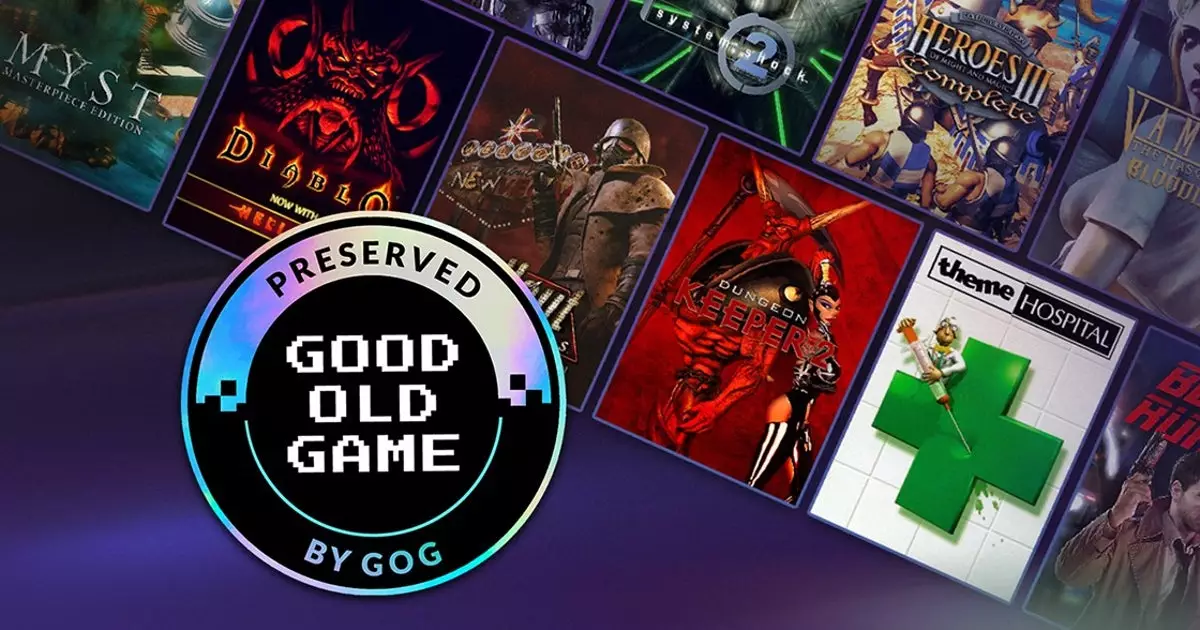In recent years, the digital game retailer GOG (Good Old Games) has shifted its core focus, transitioning from a platform primarily dedicated to classic titles and retro gaming to a more diverse catalog that includes modern blockbusters. While this expansion into mainstream gaming might widen their audience and increase sales, it raises questions about the site’s original mission of championing game preservation. As GOG navigates this landscape, they have announced an ambitious initiative, the GOG Preservation Program, that aims to ensure that both classic and contemporary games can be enjoyed by future generations, while remaining accessible to today’s gamers.
The transition is not merely a marketing strategy; it reflects a growing recognition within the gaming industry of the need to preserve classic titles. By addressing the compatibility issues that older games face on modern hardware, GOG is positioning itself as a key player in the continuity of video game history. The program is reminiscent of Valve’s Steam Deck Verified system, which informs players of a title’s performance on handheld devices, but it also extends further by ensuring that these older games retain their charm while being relevant in our current technological landscape.
At the heart of the GOG Preservation Program is the commitment to refine and restore classic games so they play seamlessly on modern systems. This undertaking involves rigorous updates to older titles, including squashing bugs, integrating modern video codecs, and making games compatible with Windows 10 and 11. This meticulous work not only emphasizes GOG’s dedication to quality but also redefines how gamers engage with their favorite nostalgic classics. Badged games will prominently display a “Good Old Game” certification, signaling to consumers that these titles are not just preserved, but are also the most complete version available—complete with downloadable content, expansions, manuals, and support for multiple languages.
The initiative kick-starts with over a hundred games earning “Good Old Game” status, encompassing beloved titles like the original Resident Evil trilogy, Diablo, and System Shock 2. The excitement surrounding this revival campaign lies in the fact that it allows gamers, especially those new to these classics, to experience them without the hassles of unofficial patches or mods that often mar the retro gaming experience. However, it also brings to the forefront the desire from many players for updates to games that might only be a smidgen less older, highlighting a peculiar paradox in the gaming community—where nostalgia meets contemporary expectations.
While the GOG Preservation Program is commendable, its success relies heavily on collaborations with original developers and publishers. Restoring older games often requires delving into proprietary code, a process not always welcomed by rights holders. Hence, GOG faces hurdles in securing permissions which can stall or even halt the restoration projects. Moreover, the complexities of game licensing mean that not all classic titles will receive the attention they deserve, even if they qualify for this initiative.
The issue of profitability also looms overhead; though GOG takes pride in its roots, it is ultimately a commercial enterprise. While it’s clear that a balance must be struck between preservation and commercial viability, one could argue that a robust preservation program could itself drive sales—reviving interest in retro titles among both nostalgic older gamers and curious newcomers.
The GOG Preservation Program is timely, especially as gamers increasingly express frustrations with unplayable titles due to shutdowns of servers, invoking legal challenges to reclaim accessibility to their purchased games. As the industry reckons with these issues, GOG’s initiative serves as a hopeful beacon for those who yearn for a more sustainable future in gaming—one where the legacy of classic titles is honored and preserved.
In essence, GOG is striving to meld the beloved nostalgia of yesterday’s games with modern gameplay requirements. However, the undertaking reflects a broader movement in the gaming industry regarding the importance of preserving digital culture, making GOG’s efforts not just significant for their platform but for the entire gaming community. With the promise of offline play and DRM-free accessibility, the GOG Preservation Program could redefine how we engage with classic games in the digital age—ensuring that our gaming heritage is not just remembered, but experienced, by generations to come.


Leave a Reply